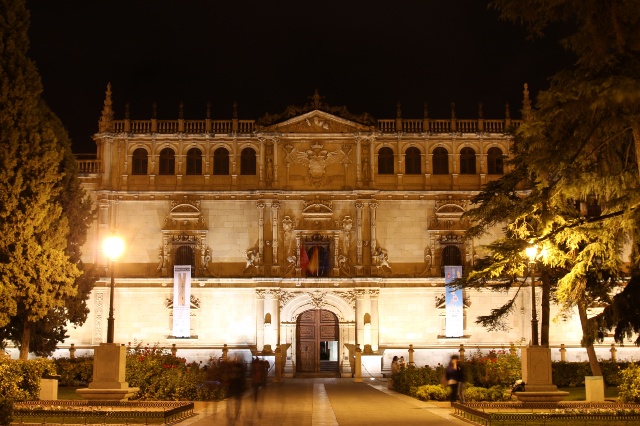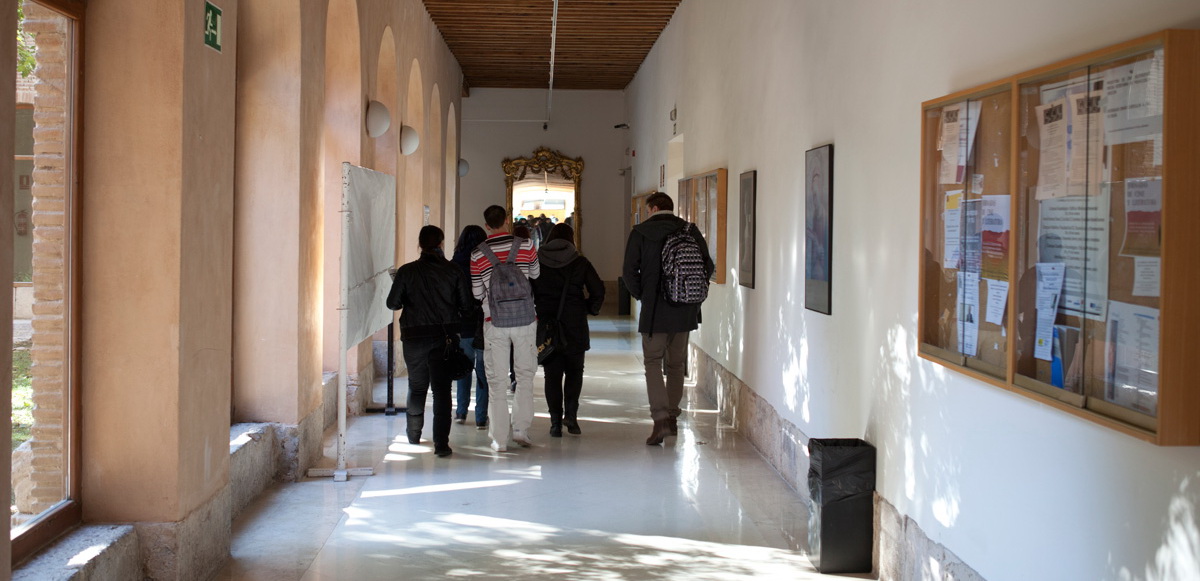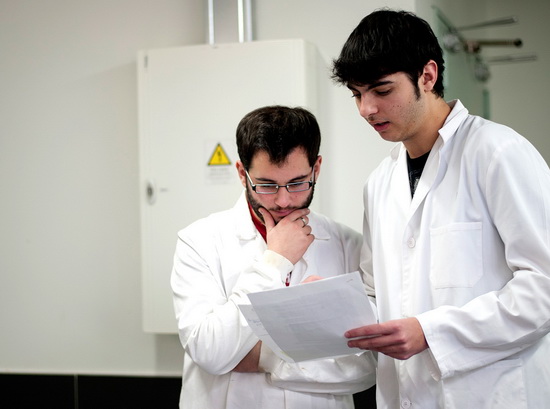
Objectives
The Degree in Humanities aims to provide students with a broad-based scientific and methodological training, with a in-depth of our culture and heritage, since its origin to present times, based on the human sciences. Students should be conscious of their changing society and actively participate in social and economic processes as agents for innovation. Accordingly, our programmes underline and promote values such as equality, human rights protection, non-discrimination and culture for peace and democratic coexistence.
They should be able to analyse and explain society through the knowledge of history and culture, artistic production (music, literature, theatre arts, etc.), philosophy, and establish connections between the present and the past. As professionals, they should be able to integrate and communicate the knowledge acquired in a structured way, explaining relationships between culture and society, and the main social, cultural and economic processes based on modern perspectives.
Competences
They should be able to analyse and explain society through the knowledge of history and culture, artistic production (music, literature, theatre arts, etc.), philosophy, and establish connections between the present and the past. As professionals, they should be able to integrate and communicate the knowledge acquired in a structured way, explaining relationships between culture and society, and the main social, cultural and economic processes based on modern perspectives.
Structure and credits
| SUBJECT TYPE | ECTS |
|---|---|
| Basic training (B) | 60,0 |
| Obligatory (Ob) | 96,0 |
| Optional (Opt) | 60,0 |
| Cross Curricular (C) | 12,0 |
| Bachelor's Degree Final Project (Ob) | 12,0 |
| TOTAL CREDITS | 240 |
Student profile
The suitable profile for students wishing to access this degree is of a person with a solid humanistic culture and vocation, social awareness, a taste for reading, capacity for attention and perception, and respect for other social customs and habits. An interest for human issues and searching for the meaning of things, a good memory and a gift for facility for communication would also be of value.
Professional opportunities and officially regulated professions
Graduates in Humanities will be able to work in pre-university education; archives, museums and libraries; cultural management and tourism; publishing and editing; social welfare and development cooperation; media and documentation; archaeology and artwork restoration.
First academic year taught
Course 2009/10 FIRST YEAR
Course 2010/11 FIRST AND SECOND YEAR
Course 2011/12 FIRST, SECOND AND THIRD YEAR
Course 2012/13 FIRST, SECOND, THIRD AND FOURTH YEAR
Academic Staff
Information leaflet
More information
- Teaching centre: Faculty of Arts and Humanities
- Official State Bulletin publication date: 23/03/2010
- Number of places available: 40
- Type of teaching: CLASSROOM
- Language of instruction: SPANISH. ENGLISH (Optional subjects)
- First Academic year taught: 2009-10
Subjects, timetables and examinations
Study plan /of adaptation to the degree / Recognition of credits
External practicums
Final Project
International Programmes and Exchanges
Movilidad nacional
Registration
Antes de realizar la matrícula es imprescindible leer la información que figura en el apartado de planificación de la enseñanza y toda la información detallada siguiente:
Regístrate para obtener usuario y contraseña
Protección de datos personales
ACCESO AL PROGRAMA DE AUTOMATRÍCULA





